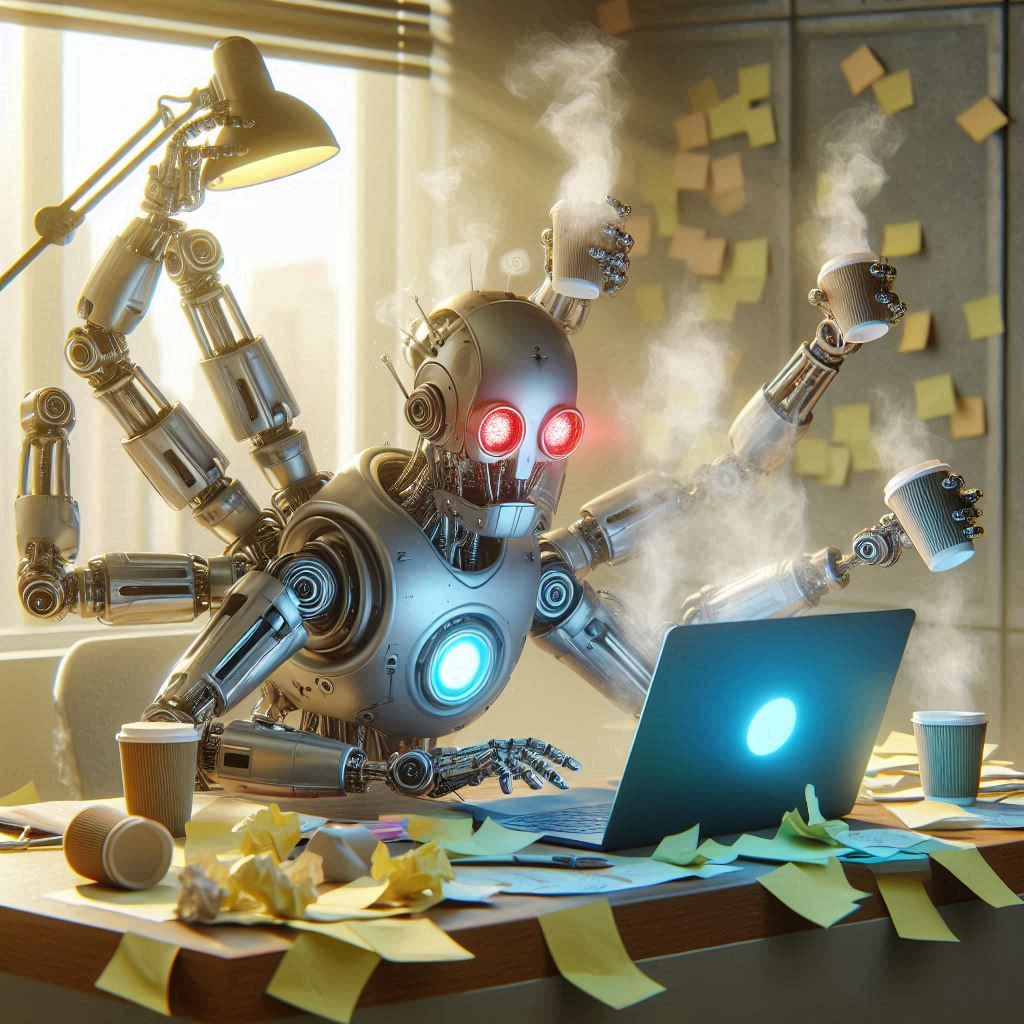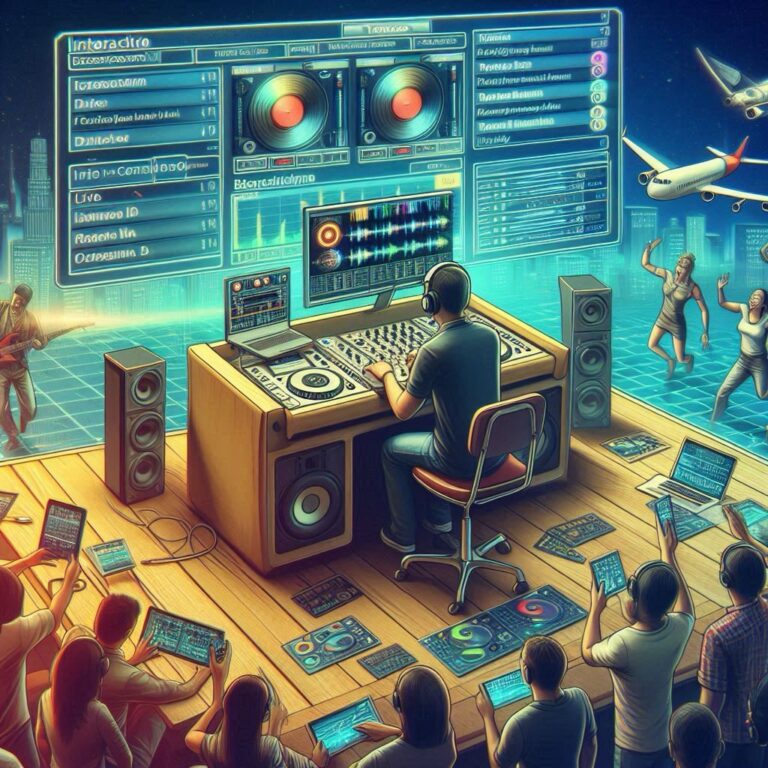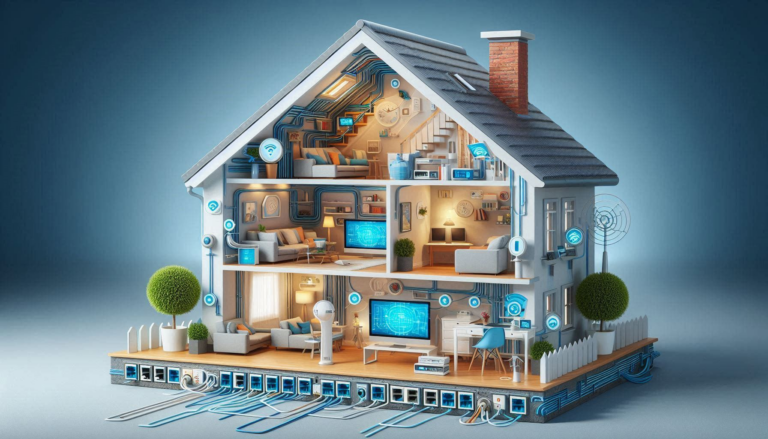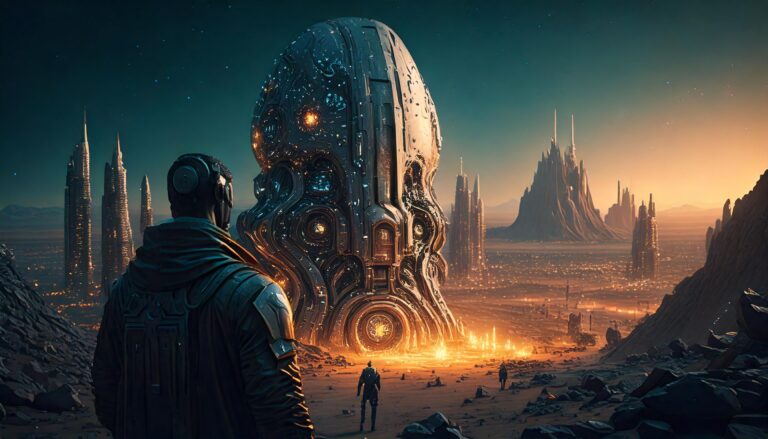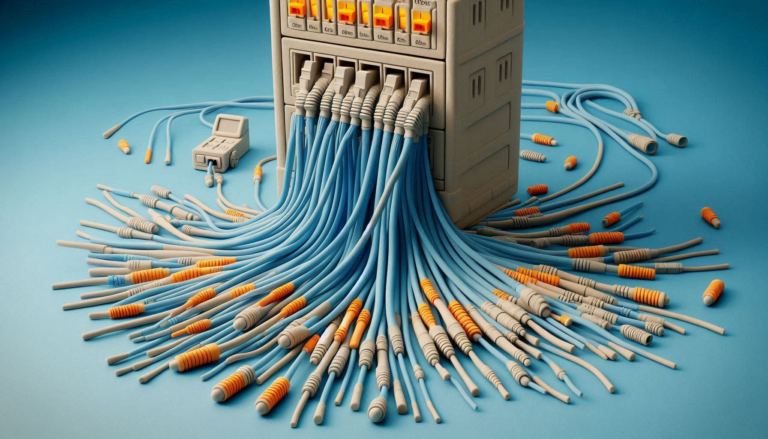The Robots Are Definitely Doing My Homework Now: A Look at Our Algorithmic Future
Let’s face it, the future arrived sometime between us figuring out how to order pizza with our voices and that weird moment your fridge tried to sell you more milk. And if you haven’t noticed, it’s largely powered by things that used to exist only in sci-fi movies – except instead of laser guns and flying cars, we mostly got really clever software that can write better marketing copy than I can on a Monday morning.
I recently dove headfirst into the digital rabbit hole of recent tech happenings, specifically sniffing around the ever-growing influence of Artificial Intelligence (AI) and its brainy cousin, the Large Language Model (LLM). It’s like the internet had a baby with a super-smart parrot that also happens to be really good at coding. The result? A world where machines are not just doing tasks, they’re starting to think they’re being helpful while occasionally suggesting we replace all our furniture with inflatable bananas.
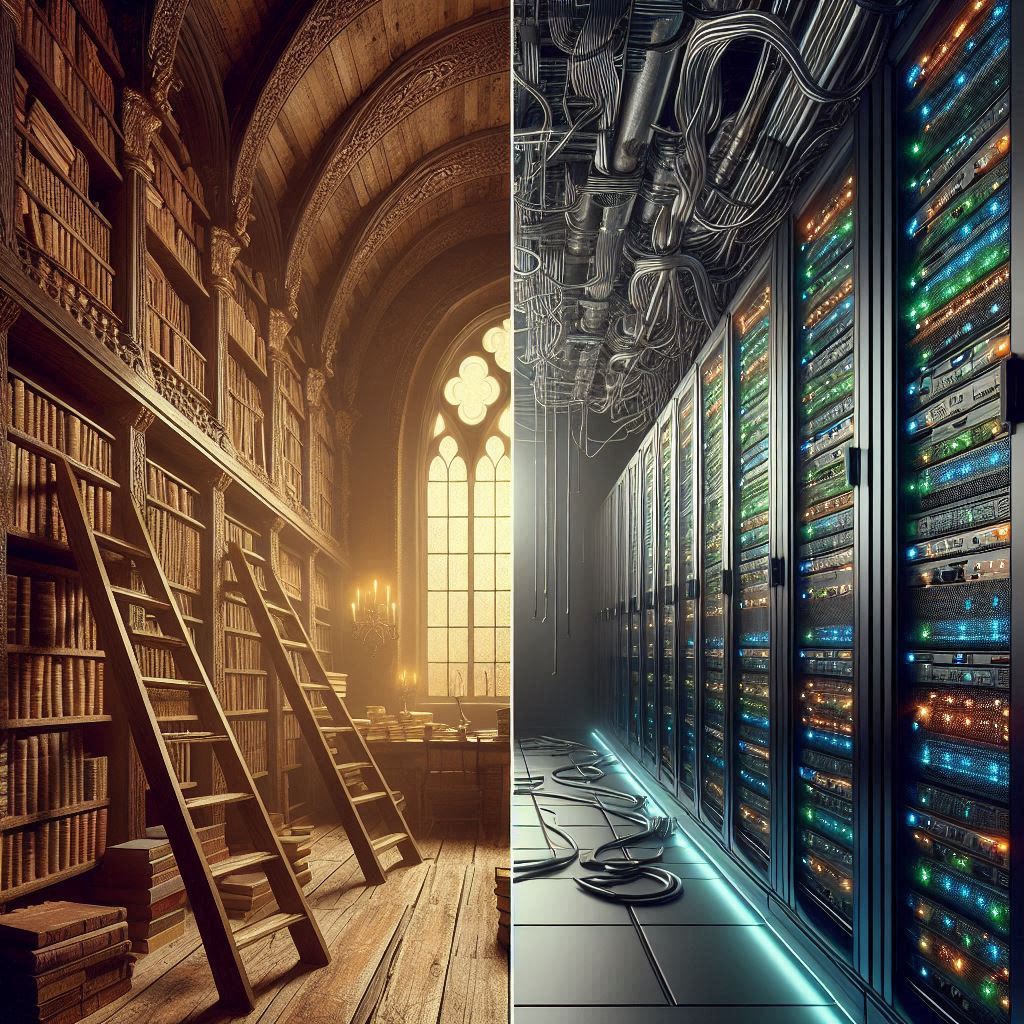
One of the epicentres of this technological tidal wave seems to be the NAB Show 2025. Now, I’ll be honest, before my deep dive, the acronym “NAB” conjured images of maybe a particularly enthusiastic knitting convention. Turns out, it’s the National Association of Broadcasters Show in Las Vegas, a place where the titans of media and entertainment gather to unveil their latest gizmos and gadgets. And this year, the undisputed king of the gadget kingdom was AI. Apparently, from the moment you stepped off the plane (probably guided by an AI-powered baggage handler that may or may not have tried to juggle your suitcase), you were bombarded with talk of algorithms doing everything from writing scripts to editing videos.
Think about it: scriptwriting AI. Remember when writer’s block meant staring blankly at a page for hours, fuelled by lukewarm coffee and existential dread? Now, you can apparently just ask a computer to whip up a screenplay. David Goyer, the guy who penned some of those “Blade” movies and that “Foundation” show, is even collaborating with an AI platform called Incention. It’s like having a writing partner who never sleeps, never complains about your plot holes, and probably has a database of every story ever told at its digital fingertips. The question, of course, is whether this leads to a golden age of storytelling or just a lot of narratives that feel like they were written by a committee of very logical robots who haven’t quite grasped the nuances of human emotion (or why we sometimes just want a character to dramatically stare out a window for five minutes).
Then there’s the video editing side of things. Apparently, AI is making post-production a breeze. Adobe and Blackmagic Design are throwing AI into their editing suites like confetti at a robot wedding. Features like “Generative Extend” in Premiere Pro can magically add frames to your clips (perfect for those moments you cut a little too early because you sneezed), and DaVinci Resolve 20 has an “AI Audio Assistant” that can automatically mix your audio. It’s enough to make you wonder if human editors will soon be relegated to just telling the AI what kind of coffee they prefer.
Even the glamorous world of visual effects (VFX) and motion graphics isn’t safe. AI is apparently helping with tasks like rotoscoping (which, from what I gather, is a very tedious process of cutting things out frame by frame) and even generating content. It’s like having a digital army of tireless assistants who don’t demand overtime or complain about the catering.
And let’s not forget the music. AI is apparently muscling its way into audio production too. Telos Alliance debuted AI-driven features in their AudioTools Server, and there’s talk of AI helping with everything from audio repair to automated mixing. Could we soon have AI composing the next chart-topping hit? Maybe. Will it have the same soul as a song written by a human who just went through a messy breakup? That remains to be heard (pun intended).

But the AI takeover isn’t just happening in the creative trenches. It’s also changing how content gets to our eyeballs. AI is optimising content delivery networks (CDNs) to make streaming smoother and is powering recommendation engines that know what we want to watch before we even do (which is either incredibly convenient or deeply unsettling, depending on your mood). It’s even helping with targeted advertising, which means we’ll probably be seeing more ads for those inflatable bananas I mentioned earlier.
Sports broadcasting, a realm traditionally dominated by shouting commentators and questionable instant replays, is also getting the AI treatment. Automated camera controls, real-time analytics that can probably predict the exact moment your team will fumble, and AI-generated highlight reels are all becoming a reality. Will we miss the human element of a commentator’s passionate (and often biased) calls? Maybe not if the AI can provide insightful analysis without resorting to tired clichés.
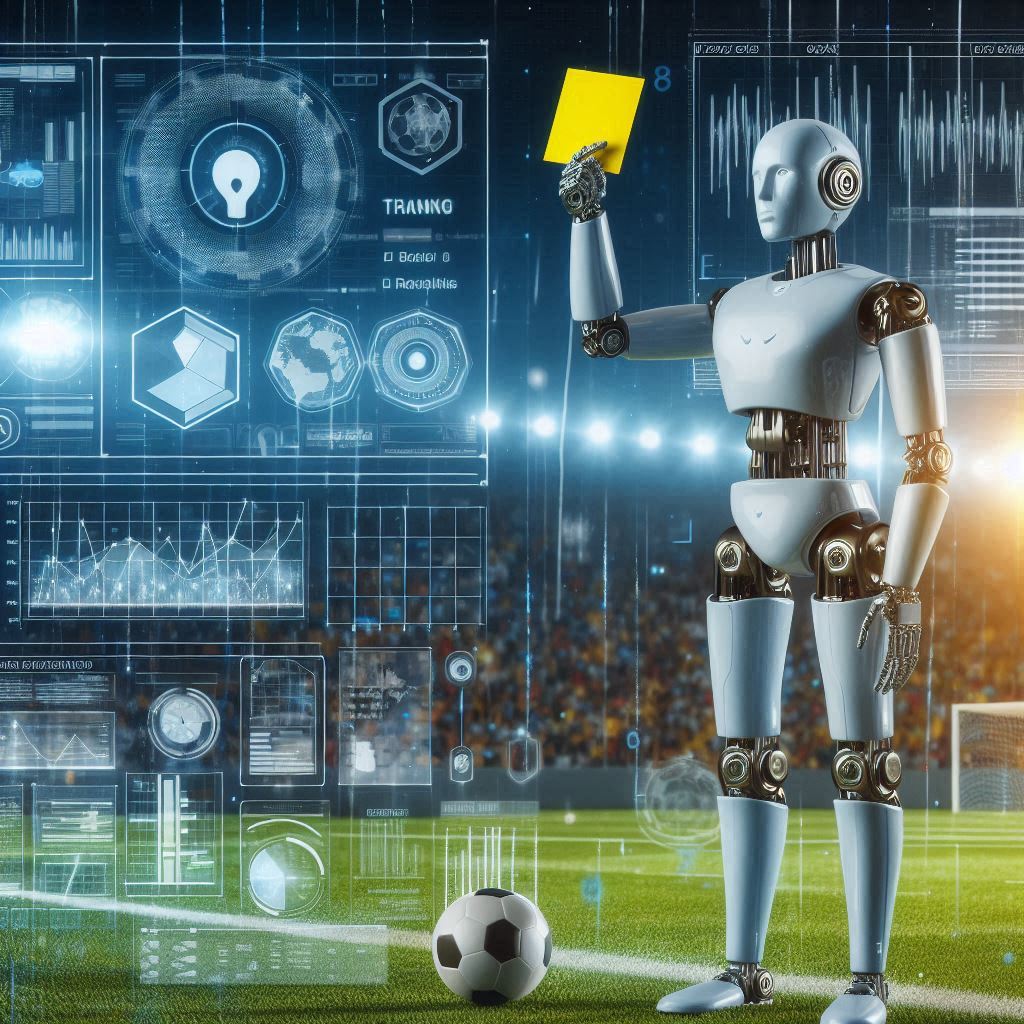
The “creator economy,” that wild west of influencers and digital storytellers, is also getting a boost from AI. Apparently, AI tools can help with everything from generating content ideas to analysing audience engagement. It’s like having a digital guru whispering secrets to online stardom in your ear (though whether those secrets involve more cat videos or surprisingly insightful commentary remains to be seen).
Now, amidst all this talk of AI making our lives easier and our content better, there’s a slightly less humorous side to the algorithmic coin: ethics. The NAB Show apparently had some serious discussions about the potential pitfalls of AI. Bias in algorithms, the spread of misinformation through deepfakes, and the thorny issue of copyright in an AI-generated world are all causing some furrowed brows in the industry. And rightly so. What happens when a robot writes a novel that’s suspiciously similar to one written by a human? Who owns the copyright? And how do we stop AI from generating increasingly convincing fake news that could make even the most seasoned fact-checker’s head spin? These are the kinds of questions that keep philosophers and lawyers up at night (probably while their AI assistants draft their arguments).
The potential impact of AI on creative jobs is also a hot topic. Will robots eventually replace human artists, writers, and editors? Some experts at NAB seemed to think AI is more of a tool to augment human creativity, freeing us from the more mundane tasks so we can focus on the artistic stuff. Others are a bit more cautious, pointing out that while AI might be an assistant now, its capabilities are evolving at a rapid pace. It’s a debate that’s likely to continue as AI gets smarter and more integrated into our creative processes.
Speaking of integration, even the world of smart homes is getting the AI treatment. Home Assistant, that open-source home automation platform beloved by tinkerers and tech enthusiasts, has been getting some interesting updates. The 2025.4 release apparently includes an experimental “Areas dashboard” that automatically generates a dashboard based on the different areas in your home. It’s like your house is finally smart enough to organise itself (though I’m still waiting for it to automatically put away the laundry). The voice assistant is also getting smarter, with the ability to have continued conversations and even initiate them proactively. Imagine your house saying, “Hey, I noticed you left the garage door open. Want me to close it?” It’s either incredibly helpful or the first step towards our homes becoming sentient and judging our life choices.
And for those of us who like to dabble in a bit of coding, the world of LLMs is constantly evolving. New models like GPT-4.5, DeepSeek R1, and Claude 3.7 Sonnet are pushing the boundaries of what these language-generating behemoths can do. From writing code to answering complex questions, these models are becoming increasingly capable. And the open-source community is buzzing with activity, with projects like DeepSeek R1 being released under permissive licenses, making advanced AI accessible to a wider range of developers. It’s like the democratisation of really smart software, which can only lead to more innovation (and probably more inflatable banana-related apps).
So, what’s the takeaway from all this algorithmic hullabaloo? Well, it seems the robots aren’t quite ready to take over the world (or my blog) just yet. But they are becoming increasingly integrated into our lives, especially in the creative industries. AI and LLMs offer incredible potential for streamlining workflows, enhancing creativity, and even unlocking new forms of storytelling. But they also come with their fair share of ethical considerations and potential challenges.

Ultimately, it feels like we’re entering a new era of collaboration – a partnership between human ingenuity and artificial intelligence. It’s a future that’s both exciting and a little bit daunting, like finally getting that self-driving car but still instinctively reaching for the brake pedal. We need to embrace these new tools, learn how to use them responsibly, and keep a watchful eye on their development. And maybe, just maybe, we can convince them that while inflatable bananas are fun, they shouldn’t replace all our furniture. For now, though, I think I’ll stick to writing my own blog posts, fueled by my own slightly less efficient, but hopefully more humorous, human brain. Now, if you’ll excuse me, I think my smart speaker just tried to order me a lifetime supply of digital broccoli. I need to have a word with it.

